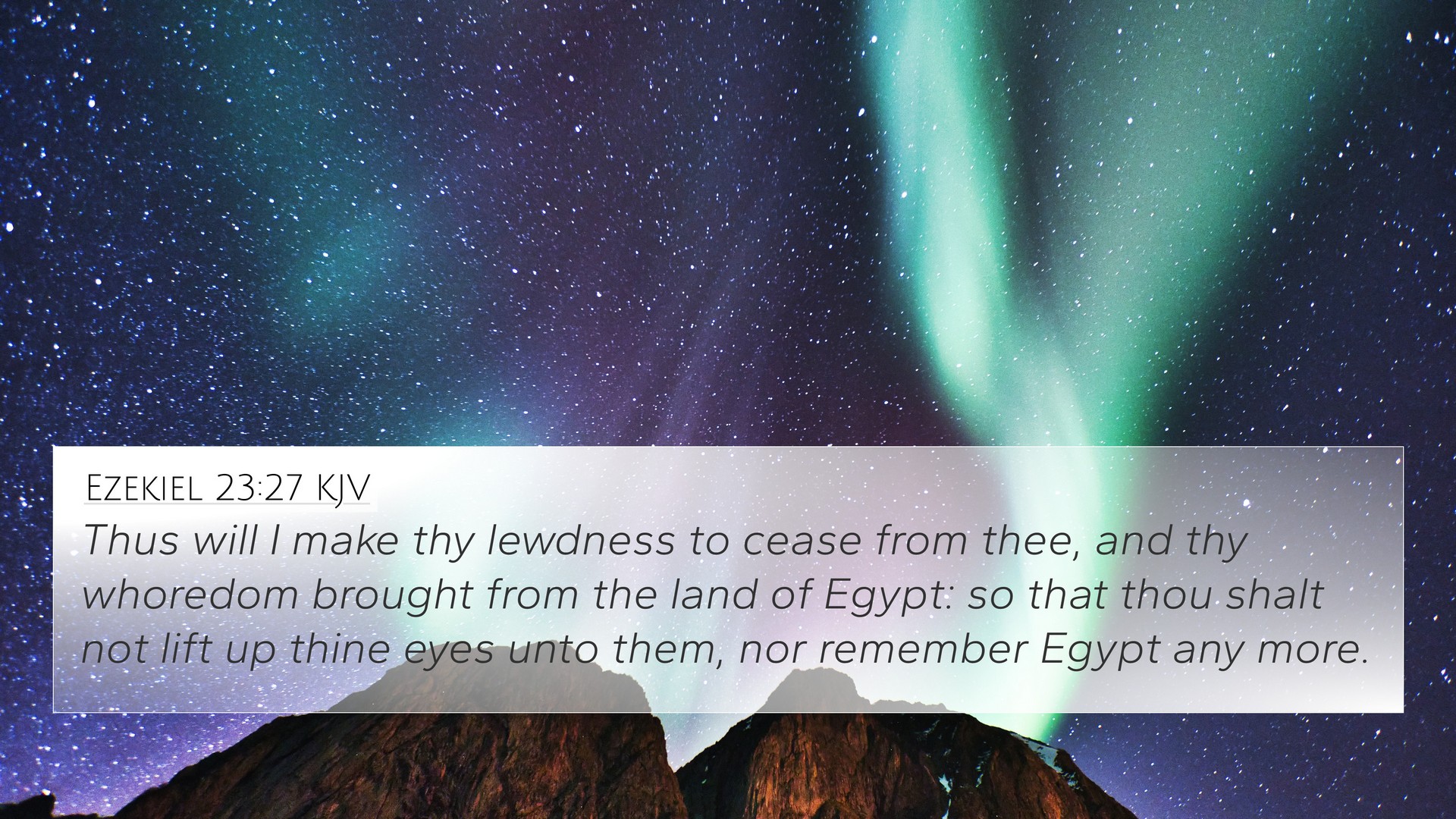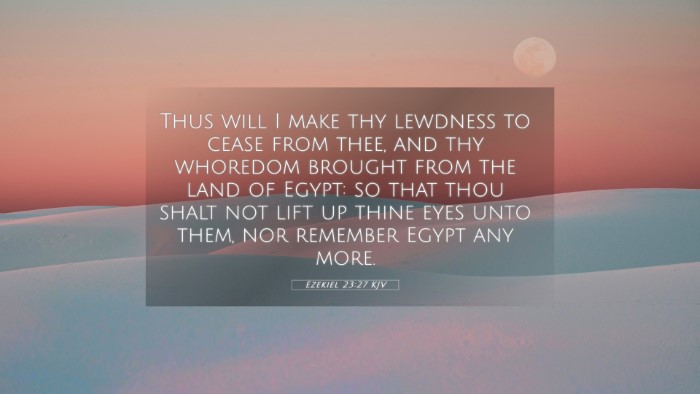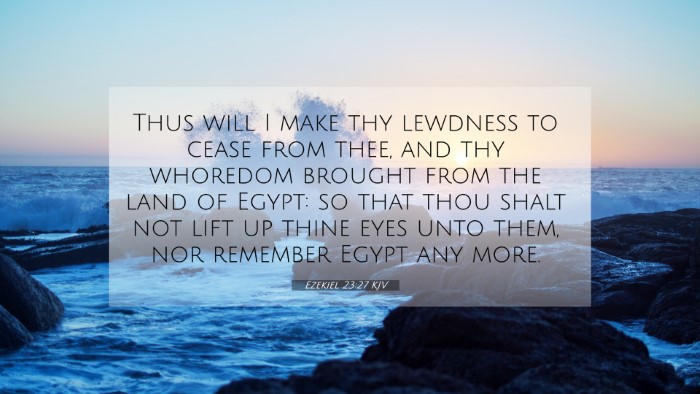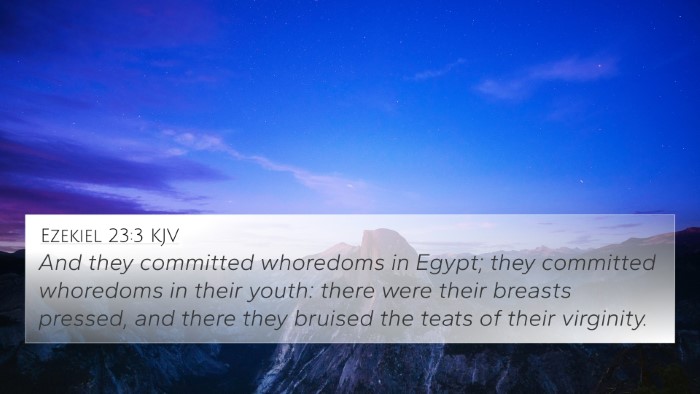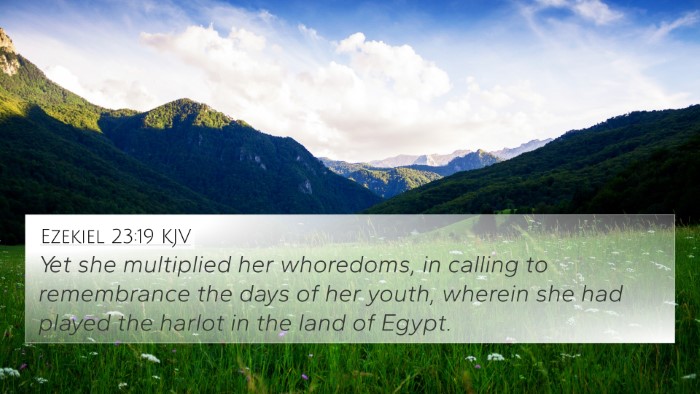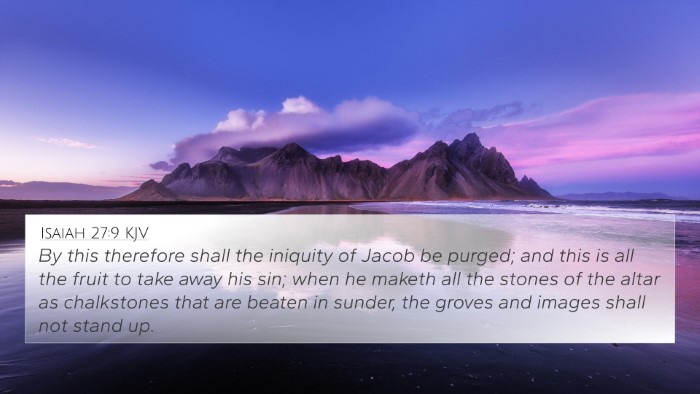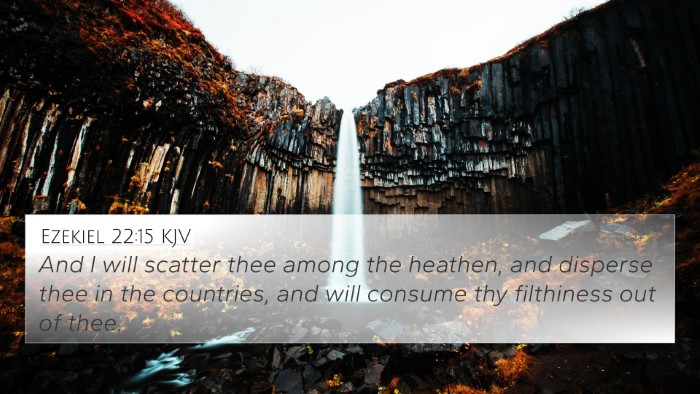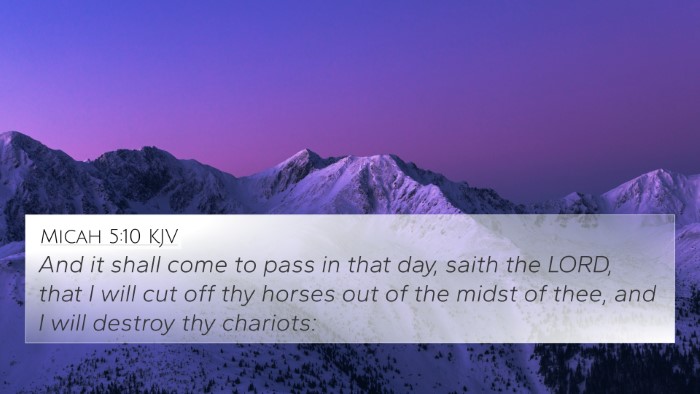Ezekiel 23:27 - Meaning and Interpretation
Ezekiel 23:27 states: "Thus will I make thy lewdness to cease from thee, and thy whoredom brought from the land of Egypt: so that thou shalt not lift up thine eyes unto them, nor remember Egypt any more." This verse, part of Ezekiel's allegorical depiction of two sisters, Oholah and Oholibah, represents the unfaithfulness of Israel to God. Through a synthesis of insights from public domain commentaries, we can delve into the profound meanings contained within this verse.
Contextual Background
The book of Ezekiel, written during the Babylonian exile, confronts the Israelites with their spiritual infidelity and appeals for repentance. Ezekiel uses vivid imagery and allegory to depict the relationship between Israel and its many idols and foreign influences, particularly drawing from historical ties with Egypt.
Interpretation of Key Themes
- God's Judgment: According to Matthew Henry, the mention of lewdness reflects God's judgment against Israel’s infidelity. His intention to 'make lewdness cease' signifies a cleansing process aimed at restoring His people.
- Redemption and Restoration: Albert Barnes emphasizes the promise of transformation. God's desire is not merely punitive; He seeks to restore Israel by removing their inclination towards idolatry represented by Egypt.
- Memory of Egypt: Adam Clarke notes that Egypt symbolizes sin and bondage. The cessation of remembering Egypt parallels the cessation of sinful ways - indicating a new beginning for God's people.
Cross References and Thematic Connections
This verse closely interacts with several other scriptures, creating a rich tapestry of interconnected themes which underline the importance of fidelity to God and the dangers of turning back to sinful sources. Below are key cross-references:
- Jeremiah 3:1 - God's call for Israel to abandon their unfaithfulness.
- Hosea 2:2 - A plea for Israel to return and remove their idolatry.
- Isaiah 19:1 - A prophecy revealing Egypt's instability and inability to offer protection or sustenance.
- 2 Corinthians 6:17 - The New Testament call to come out from among them and be separate, reinforcing the theme of separation from sin.
- Revelation 18:4 - A similar call to come out of Babylon, which represents spiritual corruption.
- Exodus 20:2-3 - The declaration of God’s sovereignty and prohibition against idolatry.
- Psalm 106:7-8 - A reflection on Israel's history of forgetfulness regarding God's works.
- James 4:4 - A statement about friendship with the world being enmity with God, paralleling the infidelity seen in Ezekiel.
- 1 Peter 2:9 - A reminder of God's call to holiness and separation for His people.
- Romans 12:2 - An exhortation to not be conformed to this world, echoing God's desire for His people to move away from Egypt's allure.
Conclusion: Understanding the Bigger Picture
In conclusion, Ezekiel 23:27 serves as a poignant reminder of the spiritual journey and the importance of fidelity to God. Commentaries highlight the threat of returning to past sins, represented by Egypt, and the promise of redemption and cleansing that comes from God’s faithfulness. This understanding encourages believers to actively seek cross-references and connections between scripture that fortify their faith and assist them in spiritual growth.
Tools for Cross-Referencing
Utilizing tools for Bible cross-referencing can enhance one’s understanding of topics such as sin, forgiveness, and redemption. Resources like a Bible concordance or a cross-reference Bible study guide can provide additional context and connections for deeper study.
Final Reflection
As readers of the Bible explore passages like Ezekiel 23:27, they are encouraged to engage in comparative Bible verse analysis and analyze the thematic links between verses that emphasize God’s desire for a pure relationship with His people. This inter-Biblical dialogue enriches one’s faith and fosters a deeper appreciation of God's redemptive plan throughout Scripture.
